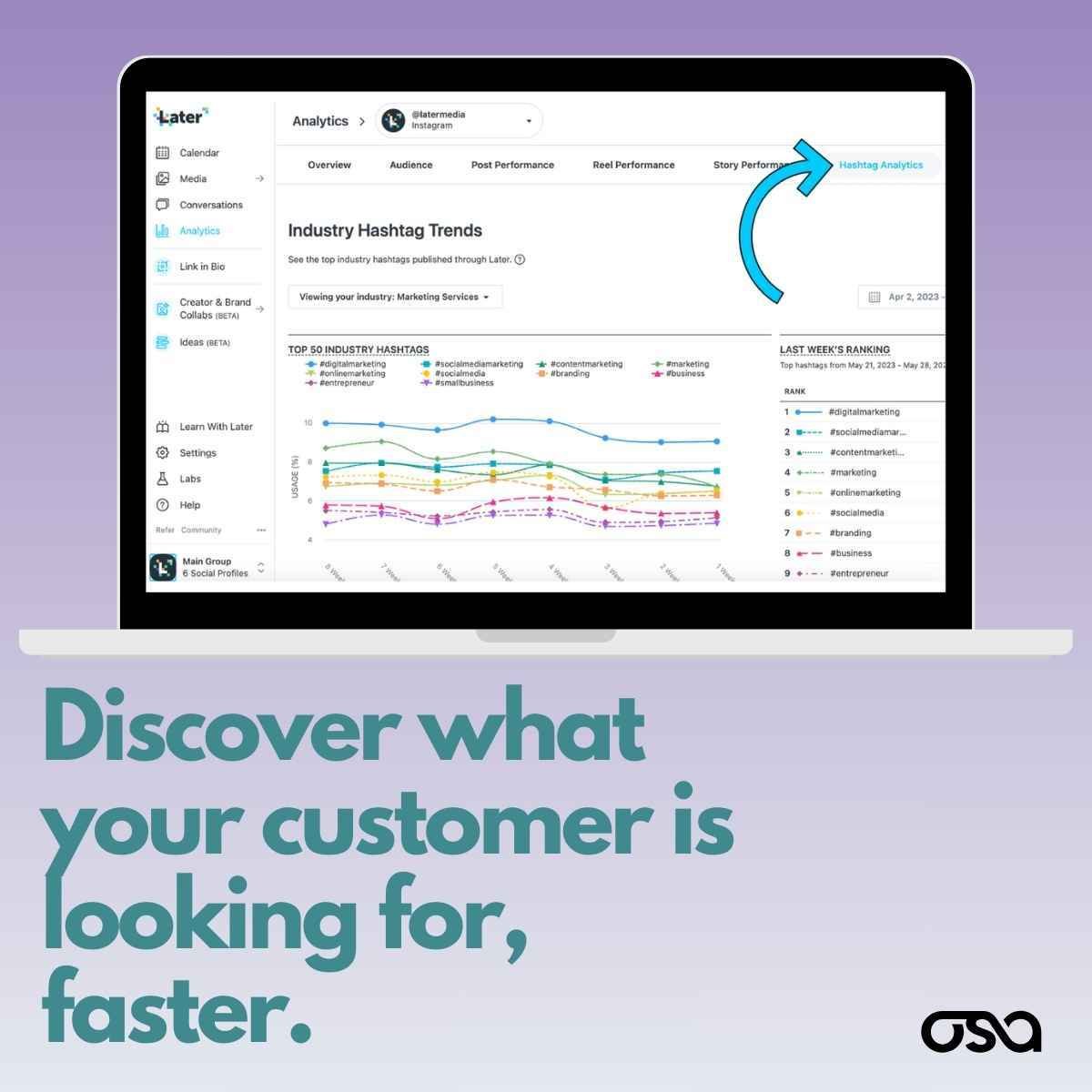.jpg)
Discover how social media is reshaping the retail industry and revolutionizing consumer behavior.
The Evolution of Social Media Marketing in Retail
Social media has completely transformed the way retailers approach marketing. It has evolved from being a simple communication and networking tool to becoming a powerful marketing platform. In the past, retailers heavily relied on traditional distribution channels to reach their target audience. However, with the rise of social media, they now have the opportunity to connect directly with consumers in a more personal and engaging way.
One of the key advantages of social media marketing is its ability to reach a wider audience. Platforms like Instagram, Facebook, and Twitter have billions of active users, making it easier for retailers to promote their products and services to a larger pool of potential customers. Moreover, social media allows retailers to target specific demographics and tailor their marketing messages accordingly, increasing the chances of conversion.
Another notable aspect of social media marketing is its cost-effectiveness. Compared to traditional advertising methods, such as TV or print ads, social media campaigns are relatively inexpensive. This is particularly beneficial for small and medium-sized retailers who may have limited marketing budgets. Through social media, these retailers can promote their products and engage with customers without breaking the bank.

Social media has also revolutionized the way retailers interact with their customers. In the past, communication between retailers and consumers was predominantly one-way, with retailers pushing out their marketing messages and customers passively receiving them. However, social media has transformed this dynamic by enabling two-way communication. Customers can now provide feedback, ask questions, and share their experiences directly with retailers on social media platforms. This not only enhances customer engagement but also allows retailers to gain valuable insights and visibility into consumer preferences and behavior.
The evolution of social media marketing has had a profound impact and has opened up new opportunities for retailers to connect with consumers, promote their products, and build brand loyalty. By leveraging the power of social media, retailers can reach a wider audience, tailor their marketing messages, and engage with customers in a more interactive and meaningful way.
The Power of Influencer Collaborations in Driving Sales
One of the most effective strategies that retailers have adopted in recent years is collaborating with influencers on social media platforms. Influencers are individuals who have amassed a large following on social media and have the power to influence the purchasing decisions of their audience. It has shown to be so successful that by 2025 it's predicted to be a $22 billion industry.
By partnering with influencers, retailers can tap into their loyal and engaged fan base, effectively reaching a wider audience and driving sales. Influencers often create content featuring the retailer's products or services, showcasing their benefits and providing genuine reviews. This type of user-generated content is highly trusted by consumers and can significantly impact their purchasing decisions. The social engagement rates also skyrocket during influencer brand trips, some of the more notable ones are Revolve Around The World and Trippin With Tarte. However, it's important to see the brand vision and if this aligns with it along with budget, we've seen both spikes and dips in influencer trips the past few years.
In addition to increasing brand awareness and driving sales, influencer collaborations also help retailers build credibility and trust. When an influencer promotes a retailer's products or services, their audience perceives it as a personal recommendation rather than traditional advertising. This personal touch creates a sense of authenticity and credibility, making consumers more likely to trust the retailer and make a purchase. In fact, 63% of marketers state that influencer created content performs better than different forms of brand content.
However, it is important for retailers to carefully choose the right influencers to collaborate with and the right campaigns. They should consider factors such as the influencer's target audience, engagement rate, and alignment with their brand values. By partnering with influencers who resonate with their target market, retailers can maximize the impact of their collaborations and ensure a higher return on investment.
Influencer collaborations have become a powerful tool for retailers to leverage the influence and reach of social media personalities. By partnering with the right influencers, retailers can effectively drive sales, build credibility, and create a strong brand presence on social media.

Enhancing Customer Engagement Through Social Media
Social media provides retailers with a unique opportunity to engage with their customers on a personal level. Unlike traditional marketing channels, social media allows for direct and real-time interaction between retailers and consumers.
One of the ways retailers can enhance customer engagement is by actively responding to customer comments, messages, and reviews on social media platforms. This shows customers that their opinions and feedback are valued, and it helps build a positive brand image. By promptly addressing customer concerns and inquiries, retailers can also improve customer satisfaction and loyalty.
Another effective way to enhance customer engagement is by creating interactive content on social media. This can include polls, quizzes, contests, and interactive videos. By encouraging customers to actively participate, retailers can create a sense of community and foster a deeper connection with their audience. Interactive content also provides valuable insights into customer preferences and interests, which can be used to tailor future marketing strategies.
Furthermore, social media platforms offer retailers the opportunity to showcase their brand personality and values. By sharing behind-the-scenes content, employee stories, and philanthropic initiatives, retailers can humanize their brand and create an emotional connection with customers. This emotional connection not only enhances customer engagement but also fosters brand loyalty and advocacy.
Social media presents retailers with a powerful platform to enhance customer engagement. By actively interacting with customers, creating interactive content, and showcasing their brand personality, retailers can build stronger relationships with their audience, improve customer satisfaction, and ultimately drive sales.
Utilizing Data Analytics for Targeted Marketing Strategies
Data analytics plays a crucial role in helping retailers develop targeted marketing strategies on social media. By analyzing customer data and social media metrics, retailers can gain valuable insights into consumer behavior, preferences, and trends.
One of the key benefits of data analytics is its ability to segment customers based on various criteria, such as demographics, interests, and purchasing behavior. This allows retailers to create personalized marketing messages and offers that resonate with specific customer segments. By delivering relevant content to the right audience, retailers can significantly increase the effectiveness of their social media campaigns and drive higher conversion rates.
Data analytics also enables retailers to track and measure the performance of their social media marketing efforts. By monitoring key metrics such as engagement rate, click-through rate, and conversion rate, retailers can identify what strategies are working and make data-driven decisions to optimize their campaigns. This continuous monitoring and analysis help retailers refine their marketing strategies, allocate resources more effectively, and maximize their return on investment.
Moreover, data analytics can also uncover valuable insights about customer preferences and trends. By analyzing social media conversations, sentiment analysis, and customer feedback, retailers can identify emerging trends, customer pain points, and opportunities for innovation. This enables retailers to stay ahead of the competition and adapt not only their marketing strategies to meet changing consumer demands—but also fulfillment resources.
Data analytics empowers retailers to develop targeted marketing strategies on social media. By leveraging customer data and social media metrics, retailers can personalize their marketing messages, optimize their campaigns, and gain valuable insights into consumer behavior and trends.

Future Trends and Innovations in Social Commerce
The retail industry is constantly evolving, and social media continues to be at the forefront of this evolution. As technology advances and consumer behaviors change, new trends and innovations in social commerce are emerging.
One of the future trends in social commerce is the integration of augmented reality (AR) and virtual reality (VR) technology. These technologies allow consumers to virtually try on products, visualize how they would look in their homes, or experience immersive shopping environments. By incorporating AR and VR into their social media marketing strategies, retailers can provide a more interactive and engaging shopping experience for their customers, ultimately driving sales and increasing customer satisfaction.
Another trend is the rise of social commerce platforms, such as Instagram Shopping and TikTok Shop. These platforms enable retailers to sell products directly to consumers within the social media environment. With features like shoppable posts and in-app checkout, social commerce platforms streamline the purchasing process and make it more convenient for customers to make a purchase. This trend is expected to continue growing, as more consumers embrace social media as a shopping destination.
.jpg?width=1200&height=1200&name=images%20ideas%20(1).jpg)
Additionally, the use of artificial intelligence (AI) and machine learning in social media marketing is also on the rise. AI-powered chatbots, personalized recommendations, and predictive analytics are just a few examples of how AI is being utilized to enhance the customer experience and drive sales. By leveraging AI capabilities, retailers can automate repetitive tasks, deliver personalized shopping experiences, and gain deeper insights into customer preferences.
The future of social commerce holds exciting possibilities for retailers. The integration of AR and VR technology, the growth of social commerce platforms, and the increasing use of AI are just a few trends that are shaping the industry. By staying informed and embracing these innovations, retailers can stay ahead of the competition and continue to thrive in the ever-changing retail landscape.


